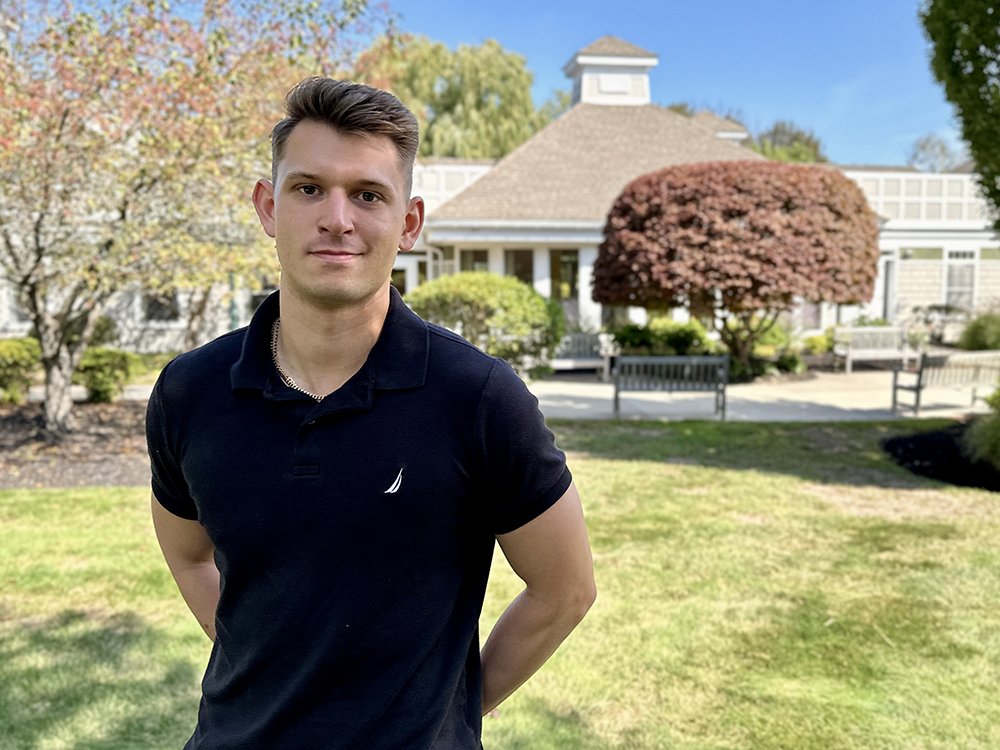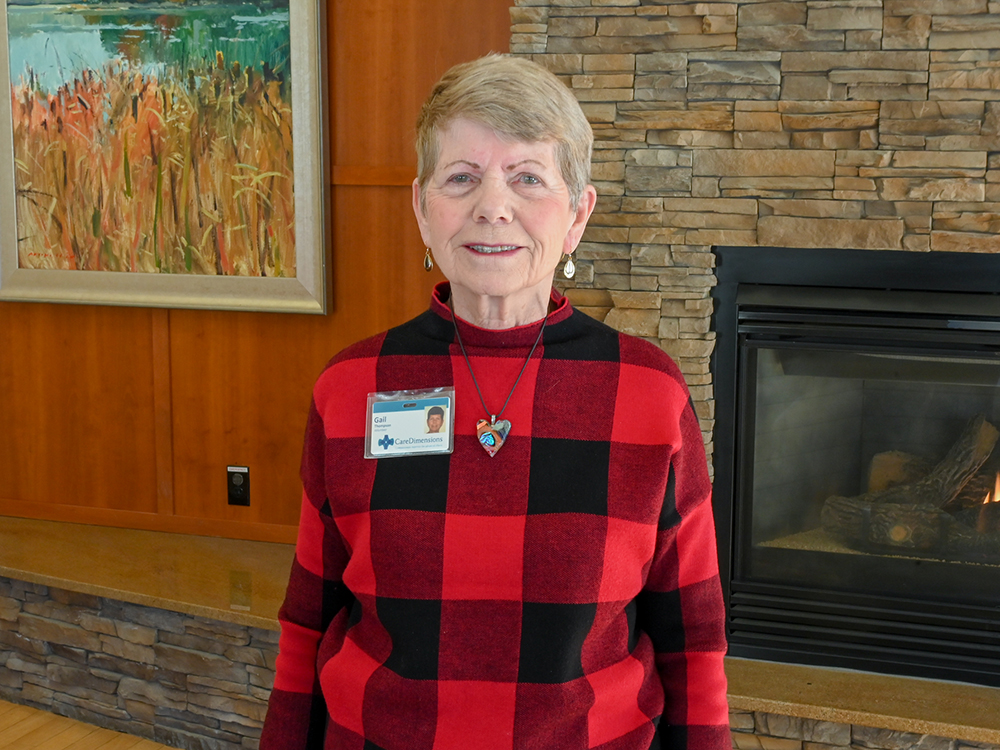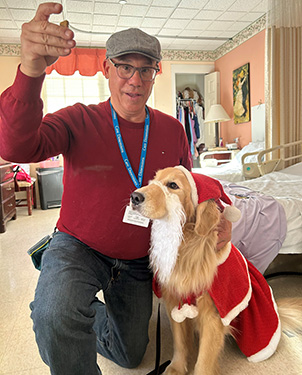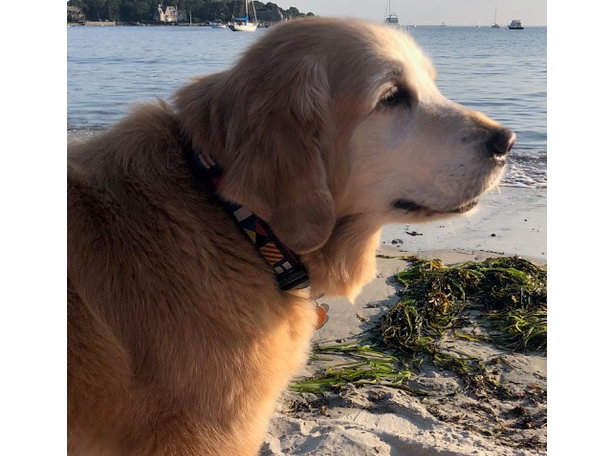How can we help?
888-283-1722
Call us now at 888-283-1722
24/7 Referrals and Nursing Support
Voices of Care Blog

From Personal Loss to Meaningful Service: One Volunteer's Journey at Care Dimensions
Posted on September 15, 2025 by Shaun NevilleTommy Janes was just eleven years old when his Nana passed away from breast cancer at Care Dimensions' Kaplan Family Hospice House in Danvers. At the time, he admits, "I didn't like going there because it was sad."
But even as a sixth-grader processing grief, Tommy remembered something important about that difficult experience: "It was a really nice facility and everyone was super nice."
That childhood memory would prove pivotal years later when Tommy, attending college at UMass Amherst with an eye towards medical school, was looking for meaningful volunteer opportunities. Tommy realized that hospice volunteering would offer both personal meaning and valuable patient-centered experience.
"I remembered my Nana had her care there and I just thought that would be a great fit for me," Tommy explains.
After being mentored by another UMass graduate who had volunteered with Care Dimensions, Tommy knew he wanted to give back to the organization that had cared for his family during one of their most difficult times.
Learning to Connect Beyond Words
Tommy's first patient assignment wasn’t exactly what he expected. After completing his training and anticipating "really in-depth life review conversations," Tommy found himself visiting a patient with advanced dementia in a long-term care facility.
"That first shift was a big learning curve, like, ‘oh man, what am I going to do here?’" Tommy recalls. Without family members present to help fill in details about the patient's life, Tommy had to adapt quickly. "I kind of just adjusted and tried to lead conversations the best I could."
While he didn't receive much verbal feedback, Tommy learned to read other cues.
"You can kind of put the pieces together," he discovered, noticing Army veteran hats and family photos around the room. "I think he did really appreciate having me there for a couple hours a week, just someone in there to keep him company."
This experience taught Tommy that meaningful connection doesn't always require conversation. Sometimes, presence itself is the gift.
Finding the Stories That Matter
Tommy's second patient assignment offered a different but equally rewarding experience. Visiting a former restaurant owner in his home, Tommy got to know not just the patient but also his children, who rotated as caregivers. This family dynamic allowed for richer storytelling and deeper life review conversations.
"He was a really cool guy," Tommy shares warmly. The patient would proudly show off his college class ring, and through conversations with the children, Tommy learned the touching story behind it. Though the man had left college early to take over his father's restaurant, his friendship with the Dean later earned him an honorary degree.
“He probably showed that ring to me dozens of times, and each time, I let him tell me about the details. You could see how it visibly raised his spirits and lit his face up with pride."
Tommy also heard stories of celebrity phone calls – including with Frank Sinatra – and the daily rhythms of running a bustling restaurant. It all gave the patient an outlet to share about his past, remembering fond memories of a full life.
Building Skills for Medicine and Life
As someone preparing for a medical career, Tommy sees direct connections between his hospice volunteering and his future career track.
"I think that compassionate, empathetic approach to communication is especially important in healthcare,” he explains.
Post-college, but pre-medical school, Tommy is now a cancer researcher at Dana-Farber Cancer Institute, and envisions a potential path into oncology. There, especially, he can see how subtle communication skills that he’s developed with patients will be valuable.
"In oncology, you really have to walk a thin line when talking to patients and families: not giving too much hope, even if there is good news; and trying to retain some hope, even if the news is bad."
A Circle of Care
Tommy's journey from an eleven-year-old boy visiting his grandmother to a young adult providing comfort to other families speaks to the ripple effects of compassionate care. The kindness his family received inspired Tommy to pay that forward, creating new circles of support for other families facing end-of-life challenges.
As Tommy prepares for medical school, he carries with him the lessons learned from those visits.
"The best part about being a Care Dimensions volunteer is being able to spend time with patients during such a vulnerable part of their lives, and being able to provide comfort, companionship, and dignity to them.”
Learn more about the volunteer program and how you can get involved at CareDimensions.org/Volunteers.
Additional Posts
Finding Purpose in Hospice Care: My 45 Years as a Volunteer
Posted on May 16, 2025 by Gail Thompson in Hospice, Kaplan Family Hospice House, VolunteersOver the past four decades, Gail Thompson's connection to hospice has gone from personal loss to profound purpose. She shares the rewards of supporting families through life's most difficult transitions as a hospice volunteer. ...
Continue readingHospice Volunteer: Pet Therapy Work ‘Worth More Than Money’
Posted on January 29, 2025 by Lisa Conti in Pet therapy, VolunteersCare Dimensions Hospice Volunteer Brian Cafarella discusses the joys and rewards of visiting patients with his pet therapy dog, Patriot. ...
Continue readingA Tribute to Patrick: More Than a Therapy Dog
Posted on October 25, 2024 by Care Dimensions in Complementary therapy, Pet therapy, VolunteersRemembering Care Dimensions' first therapy dog, who brought comfort and joy to countless hospice patients and their families. ...
Continue readingAnyone—patient, family, care provider—can make a referral. Fill in the form online or call us today.
Since 1978, Care Dimensions, formerly Hospice of the North Shore, has provided comprehensive and compassionate care for individuals and families dealing with life-threatening illnesses. As the non-profit leader in advanced illness care, we offer services in over 100 communities in Massachusetts.
Copyright 2026 | Care Dimensions, 75 Sylvan Street, Suite B-102, Danvers, MA 01923 | 888-283-1722 | 978-774-7566 |









